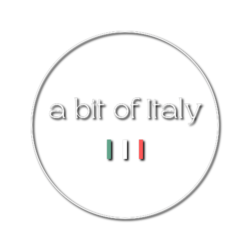Here are five simple charts of the changes involved in the transformation from direct speech to indirect speech in Italian:
| Direct speech | Indirect speech |
| introduced by: | |
| colon (:)speech marks (<< >>) or quotation marks (” “)or a dash (-) | verbs as “dire, chiedere, rispondere, ordinare…” (to say, ask, reply, order…) + “che” (that) |
| Tu hai detto: “voglio andare al cinema.“ | Lui ha detto che vuole andare al cinema. |
| Direct speech | Indirect speech |
| In the indirect speech the subject of the sentence usually changes to the third person (depending whom we are reporting the speech to): | |
| io/tu (I/you) | lui/lei/egli (he/she) |
| noi/voi (we/you) | loro (they) |
| Tu hai detto: “voglio andare al cinema.“Tu hai detto: “voglio andare al cinema.“ | Lui ha detto che vuole andare al cinema. Tu hai detto che vuoi andare al cinema. |
| Direct speech | Indirect speech |
| The possessive adjective or pronoun changes accordingly: | |
| mio/tuo (my/youy/mine/yours) nostro/vostro (our/your/ours/yours) | suo/sua/loro (his/her/hers/their/theirs) |
| Tu hai detto: “voglio andare con la mia macchina.“ | Lui ha detto che vuole andare con la sua macchina. |
| Direct speech | Indirect speech |
| Other elements usually change: | |
| qui/qua (here) | lì/là (there) |
| questo (this) | quello (that) |
| ora (now) | allora (then) |
| oggi (today) | quel giorno (that day) |
| ieri (yesterday) | il giorno prima (the day before) |
| domani (tomorrow) | il giorno seguente, il giorno dopo, l’indomani (the following day) |
| venire (to come) | andare (to go) |
| Tu hai detto: “domani ci incontriamoqui.“ | Lui ha detto che il giorno seguente si sarebbero incontrati lì. |
| Direct speech | Indirect speech |
| The verbs in the indirect speech change accordingly: | |
| presente (when the verb introducing the speech is in the present or sometimes the passato prossimo) | presente |
| presente (when the verb introducing the speech is in the past) | imperfetto |
| imperativo | di+infinito |
| futuro | condizionale passato |
| condizionale presente | condizionale passato |
| passato prossimo | trapassato prossimo |
| passato remoto | trapassato prossimo |
| Tu dici sempre: “vado al cinema” ma poi non ci vai mai.Tu hai detto: “vado al cinema” ma poi non ci sei andato.Tu hai detto: “domani ci incontreremo qui.“ | Lui dice sempre che va al cinema ma poi non ci va mai.Lui ha detto che andava al cinema ma poi non c’è andato.Lui ha detto che il giorno seguente si sarebbero incontrati lì. |
INDIRECT QUESTIONS
The transformation from direct to indirect question is the same as that for direct/indirect speech:
| Direct question | Indirect question |
| La mamma domanda al bambino: “Hai fatto i compiti?” | La mamma domanda al bambino se ha fatto i compiti. |
| La mamma domandò al bambino: “Hai fatto i compiti?” | La mamma domandò al bambino se aveva fatto i compiti. |
However, when we want to emphasize the indirect question (especially in writing) the subjunctive is required instead of the indicative:
| Direct question | Indirect question |
| La mamma domanda al bambino: “Hai fatto i compiti?” | La mamma domanda al bambino se abbia fatto i compiti. |
| La mamma domandò al bambino: “Hai fatto i compiti?” | La mamma domandò al bambino se avesse fatto i compiti. |
Nowdays, there is an increasing tendency among Italians to use the indicative instead of the subjunctive. However, the subjunctive is required for a proper use of the language.

